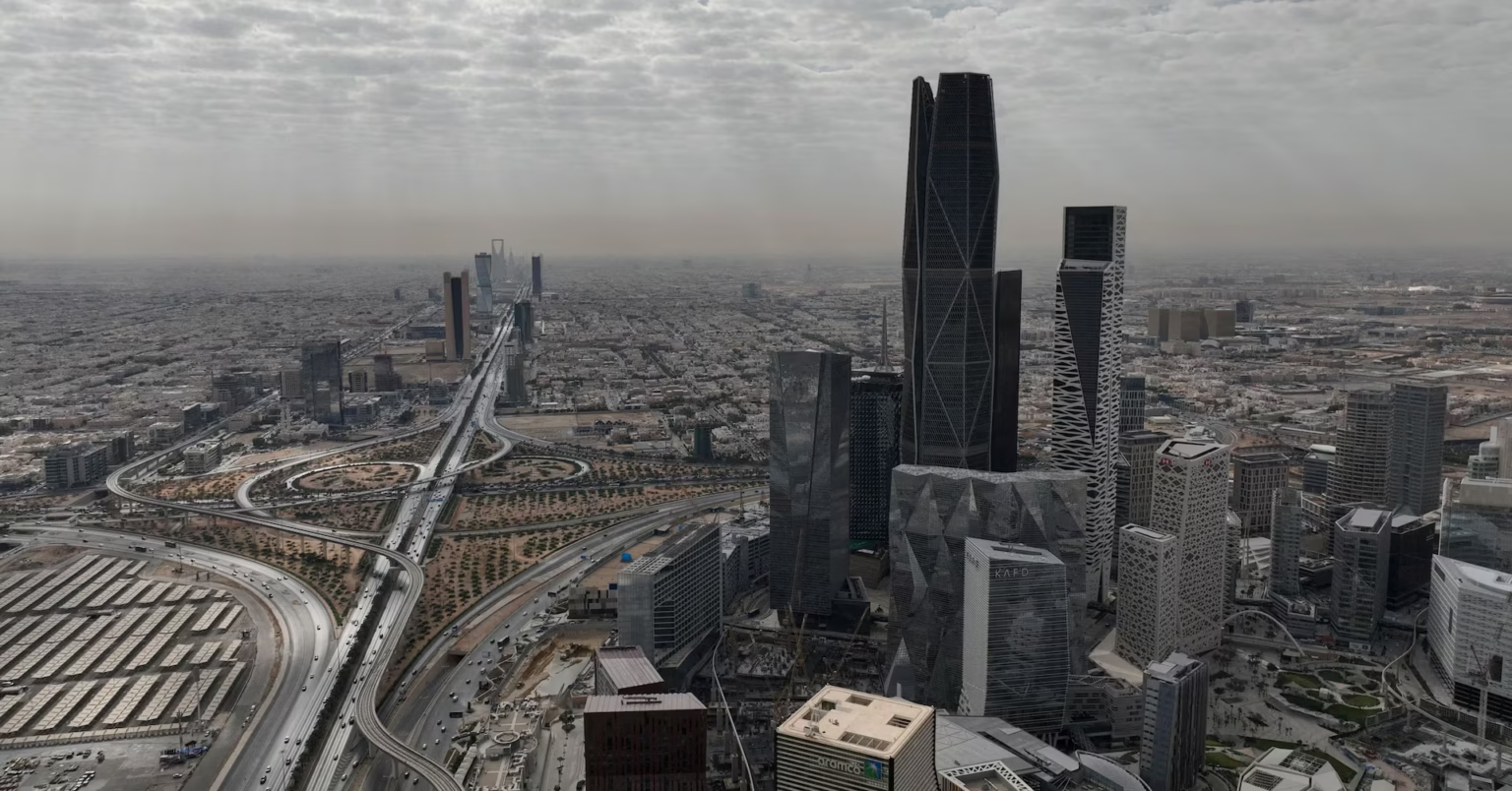Saudi Arabia’s non-oil private sector is expanding steadily, reflecting the Kingdom’s success in diversifying its economy. A recent survey highlights increased business activity, rising employment, and strong investor confidence as key drivers of this growth.
Saudi Arabia’s Economic Diversification Strategy
Saudi Arabia has historically depended on oil revenues, but Vision 2030 aims to shift the focus towards non-oil sectors such as tourism, technology, and manufacturing. This long-term strategy is already showing positive results, as recent data from the Riyad Bank Saudi Arabia Purchasing Managers’ Index (PMI) indicates consistent growth in the non-oil private sector.
The initiative also focuses on creating job opportunities for Saudi nationals, enhancing infrastructure, and increasing the country’s global competitiveness. With various reforms and foreign direct investment incentives, the Saudi government continues to lay the foundation for a more diverse and sustainable economy.
Key Findings from the Survey
The latest PMI report provides several encouraging insights:
- Increased Business Activity: Many companies report higher production and a rise in new orders.
- Job Growth: Businesses are hiring more employees, contributing to economic stability.
- Optimistic Market Sentiment: Investors and business leaders express confidence in future growth.
- Stable Cost Conditions: Businesses are managing input costs effectively, keeping consumer prices steady.
- Rising Export Demand: The expansion of non-oil exports is providing additional revenue streams for businesses.
Factors Driving Growth
Several elements contribute to the ongoing expansion of Saudi Arabia’s non-oil sector:
1. Government Support and Investments
Saudi Arabia’s government has introduced incentives to boost investment in non-oil industries. Mega projects like NEOM, Qiddiya, and the Red Sea Development Project are attracting both local and foreign investors. Additionally, financing programs for small and medium-sized enterprises (SMEs) are fueling entrepreneurship and innovation.
The Public Investment Fund (PIF) plays a crucial role in fostering economic diversification by supporting large-scale projects and encouraging the growth of various industries. These efforts have significantly contributed to the acceleration of the non-oil sector.
2. Expanding Tourism Industry
Saudi Arabia’s tourism sector is growing rapidly due to relaxed visa policies, cultural events, and major infrastructure developments. With ambitious projects such as Diriyah Gate and AlUla heritage sites, the Kingdom is becoming a top destination for global travelers.
The Saudi government aims to welcome 100 million visitors annually by 2030, creating a strong foundation for hospitality, retail, and entertainment industries. This expansion is driving demand for hotels, restaurants, and leisure services, further stimulating the non-oil economy.
3. Digital Transformation and Innovation
The Saudi government is prioritizing digital advancements, leading to growth in technology, fintech, and e-commerce. This shift is improving business efficiency and fostering new opportunities across industries.
Key initiatives such as the Saudi Data and AI Authority (SDAIA) and the development of smart cities, including NEOM, showcase the country’s commitment to digital transformation. Businesses in sectors like cybersecurity, cloud computing, and artificial intelligence are benefiting from these advancements, contributing to economic growth.
4. Rising Consumer Demand
Saudi Arabia’s youthful population and increasing disposable income are fueling demand for retail, entertainment, and services, driving business expansion. The shift in consumer behavior, coupled with the adoption of digital payment solutions, is transforming the retail landscape.
E-commerce is experiencing rapid growth, supported by investments in logistics and digital infrastructure. This trend is expected to continue as more consumers shift toward online shopping and digital transactions.
5. Industrial and Manufacturing Growth
Saudi Arabia is making significant progress in boosting its manufacturing sector. The government is investing in local production to reduce reliance on imports and strengthen domestic supply chains. Industries such as automotive, pharmaceuticals, and renewable energy are expanding, offering new opportunities for businesses and job seekers.
The National Industrial Development and Logistics Program (NIDLP) is a key initiative aimed at enhancing the Kingdom’s industrial capabilities. With increased investment in logistics infrastructure and supply chain management, Saudi Arabia is positioning itself as a regional manufacturing hub.
Challenges and Outlook
While the non-oil sector is growing, challenges remain:
- Global Economic Factors: Inflation, fluctuating exchange rates, and geopolitical tensions could impact market confidence and trade partnerships.
- Workforce Development: Training skilled professionals is vital for sustaining growth. Continued investment in education and vocational training programs is needed to meet the demands of emerging industries.
- Regulatory Adjustments: Ongoing policy improvements are necessary to support long-term stability and encourage foreign direct investment.
- Sustainability and Environmental Impact: As Saudi Arabia transitions to a more diversified economy, balancing economic growth with environmental sustainability remains a priority. Initiatives promoting green energy, carbon reduction, and sustainable business practices will play a crucial role in future development.
Despite these challenges, Saudi Arabia’s non-oil sector is expected to continue expanding, aligning with the ambitious goals of Vision 2030. The government’s proactive approach to economic reform, coupled with increased investments, is paving the way for a more robust and diversified economy.
Conclusion
Saudi Arabia’s non-oil sector is playing a crucial role in the Kingdom’s economic transformation. With strong government backing, rising investments, and a thriving consumer market, the country is on track to achieving a more sustainable and diversified economy.
The continued expansion of key industries such as tourism, technology, and manufacturing highlights the success of Vision 2030. By maintaining momentum in economic diversification efforts, Saudi Arabia is well-positioned to achieve long-term growth and stability.
As the Kingdom progresses toward its ambitious goals, the resilience of the non-oil sector will be instrumental in shaping the future of Saudi Arabia’s economy. Investors, businesses, and policymakers must work together to sustain this positive trajectory and unlock new opportunities for growth.
Also Read : US to Announce Tariff Rates for Countries on April 2: Bessent
Do follow gulf magazine on Instagram
for more information Gulf magazine .



